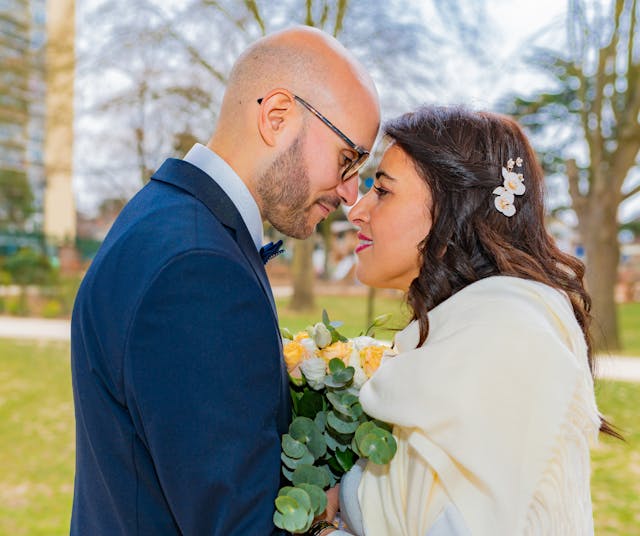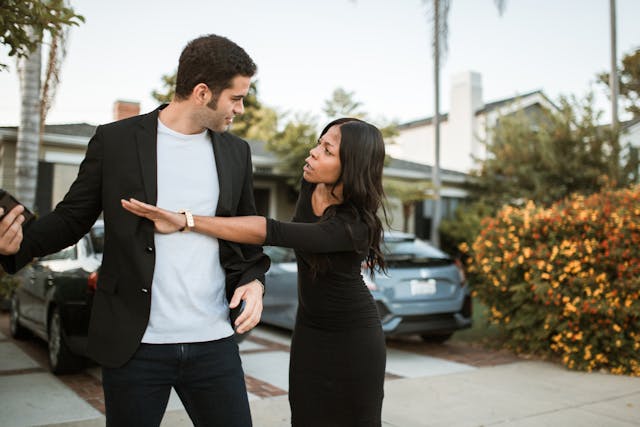When To Stop Giving Second Chances (10 Red Flags To Watch)

Everyone makes mistakes. And offering a second chance—whether in love, friendship, or family—is often seen as a sign of kindness, maturity, and hope. But what happens when the second chance becomes the seventh? When forgiveness turns into a cycle of disappointment? When grace is given, but growth never follows?
There’s a fine line between empathy and enabling. And knowing when to stop giving second chances isn’t about being cold-hearted. It’s about protecting your peace, self-worth, and emotional energy from patterns that drain instead of heal.
Here are clear signs it might be time to stop giving second chances—and start choosing yourself.
When To Stop Giving Second Chances
1. When the Apology Is Repeated, But the Behavior Is Not Changed
A sincere apology comes with changed behavior. If someone keeps saying sorry but repeats the same hurtful action over and over, then the apology becomes meaningless—it’s a form of emotional manipulation or guilt relief, not genuine remorse.
You deserve more than words. Respect is shown through action. If the person hasn’t made any real effort to grow, heal, or understand the impact of their actions, you’re not in a healthy cycle—you’re in a loop.
Holding someone accountable doesn’t mean you lack compassion. It means you recognize that love, trust, and respect must be mutual—not one-sided and endlessly repaired.
Patterns don’t lie. If it keeps happening, it’s not a mistake—it’s a choice.
Don’t Miss: 15 Secrets To Instantly Boost Your Confidence
2. When You’re Always the One Doing the Forgiving

Relationships—of any kind—require balance. If you’re constantly the one extending grace, giving passes, and swallowing your pain for the sake of “peace,” then what you have isn’t connection. It’s a one-way emotional highway.
It’s generous to forgive. But it becomes toxic when you’re doing all the emotional labor. If the other person isn’t meeting you halfway, learning, or showing growth, they’re not valuing your heart—they’re using your softness as a free pass.
Ask yourself: Is this relationship helping me heal, or am I constantly patching myself up to stay in it? If it’s the latter, the second (or third, or fourth) chance may be overdue to expire.
Love shouldn’t feel like a job with no paycheck. Respect yourself enough to step away when the giving is only going in one direction.
3. When Trust Is Broken Beyond Repair
Trust is fragile. Once it’s broken, it can be rebuilt—but only with transparency, effort, and time. If someone betrays your trust and does nothing to earn it back, continuing to offer second chances will only deepen the wound.
You’re allowed to forgive without forgetting. You can release bitterness without pretending nothing happened. But if the relationship makes you constantly second-guess their words, check their intentions, or protect your peace from the very person who should bring it—it’s not worth another round.
Rebuilding trust requires two people. If you’re the only one trying, the foundation will always be unstable.
Peace of mind is too expensive to trade for constant doubt.
Don’t Miss: 12 Habits That Damage Your Brain (Without You Realizing It)
4. When It’s Affecting Your Mental Health
When giving second chances starts to cost you your sleep, your peace, your self-esteem, or your emotional stability—that’s a red flag waving in full color. Relationships are supposed to support your well-being, not break it down piece by piece.
If you’re constantly anxious around someone, walking on eggshells, or feeling emotionally exhausted trying to keep things together, that’s your body telling you the connection is hurting more than helping.
Second chances should not come at the cost of your mental health. If keeping someone in your life means losing yourself, the price is too high.
Healing isn’t selfish—it’s survival.
5. When the Relationship Feels Like a Cycle, Not a Journey
Healthy relationships move forward. Even with bumps and setbacks, there’s progression. But if it feels like you’re stuck in the same fight, same disappointment, same heartbreak—with no lasting change—you’re in a cycle, not a journey.
People who genuinely want to stay in your life will work on the issues. They’ll acknowledge the pain they caused and actively change to avoid repeating it. If someone keeps taking you in circles, they’re not confused—they’re comfortable.
You don’t have to keep spinning in the hope they’ll “get it” eventually. Your time and energy are too valuable to waste in loops disguised as loyalty.
Cycles don’t lead anywhere. Journeys do.
6. When They Use Your Kindness Against You

Some people mistake kindness for weakness. They rely on your empathy, knowing you’ll forgive them no matter what. That’s not a partnership—it’s exploitation.
If someone uses your compassion to avoid consequences or continues disrespecting your boundaries because “you’ll get over it,” they’re not loving you—they’re manipulating you.
Giving second chances is about grace. But when grace is abused, boundaries must take its place. You’re not a doormat, and your capacity for love should not be weaponized.
True love protects—manipulation just pretends.
Read Also: 10 Traits To Become a Respected Person in 2025
7. When You’ve Outgrown the Relationship
Sometimes it’s not about betrayal or hurt—it’s about growth. You’re not the same person you were when you first gave them a second chance. And that’s okay.
People evolve. Values shift. What once made sense may no longer align with your future. If someone refuses to grow with you—or worse, resents your growth—it’s a clear sign that another chance won’t change the core misalignment.
You’re allowed to move on from people who were right for your past but wrong for your future.
Growth should be supported, not suppressed.
8. When They Expect Forgiveness Without Accountability
Second chances aren’t a right—they’re a privilege. If someone expects you to forgive them while making zero effort to acknowledge or repair the damage, that’s entitlement—not repentance.
Accountability means facing the consequences, making amends, and proving through action that they’ve learned. If those steps are skipped, the apology is empty.
You are not “difficult” or “too harsh” for expecting effort in return for grace. Expecting accountability isn’t being unforgiving—it’s being self-respecting.
If they want forgiveness, they should be willing to earn it.
9. When Your Gut Tells You It’s Time

Sometimes, your body knows before your brain can explain it. That tight feeling in your chest. The hesitation in your voice. The way you flinch when you see their name pop up. Your intuition is speaking.
If every part of you feels uneasy about giving another chance, don’t ignore that. You don’t need proof, drama, or a big betrayal to walk away. You just need clarity—and the courage to act on it.
Listen to your gut. It’s your internal compass. It’s not being bitter—it’s being wise.
You don’t owe anyone endless access to your life at the expense of your peace.
You May Like: 10 Signs You Are an Empath in 2025
10. When You Finally Realize You Deserve Better
The moment you realize your value is the moment everything changes. You stop chasing closure, stop negotiating your worth, and stop settling for emotional crumbs.
You start asking better questions: Does this relationship honor who I am? Does it make me better? Does it feel safe? If the answer is no, you owe it to yourself to close the door.
Giving second chances shouldn’t mean giving yourself away. At some point, choosing them becomes an act of abandoning yourself.
And that’s when you stop.
Final Thoughts: Letting Go Isn’t Cruel—Sometimes It’s Healing
Walking away doesn’t mean you didn’t love. It means you finally started loving yourself more. Second chances are beautiful—but only when they lead to growth, not more pain.
You can forgive someone and still choose not to invite them back into your life. That’s not bitterness. That’s boundaries.
You deserve relationships that don’t require you to constantly recover from them.
Frequently Asked Questions (FAQs)
- How many second chances are too many?
It depends on the situation, but if behavior keeps repeating and no real change happens, it’s a sign that the second, third, or tenth chance isn’t working. You’re allowed to set limits.
- Can you forgive someone and still walk away?
Absolutely. Forgiveness is for your peace. Reconnection is a separate choice. You can let go of resentment without letting them back in.
- Isn’t cutting someone off too extreme?
Not if it protects your emotional and mental well-being. Walking away doesn’t mean you hate them—it means you’ve stopped tolerating harm.
- What if they keep promising to change?
Words mean nothing without consistent action. If the change isn’t real, you’re stuck in a cycle of hope and disappointment.
- How do I know I’m not being too unforgiving?
Check your intentions. If your decision is based on truth, patterns, and your well-being—not revenge—then you’re not being unforgiving. You’re being clear.






